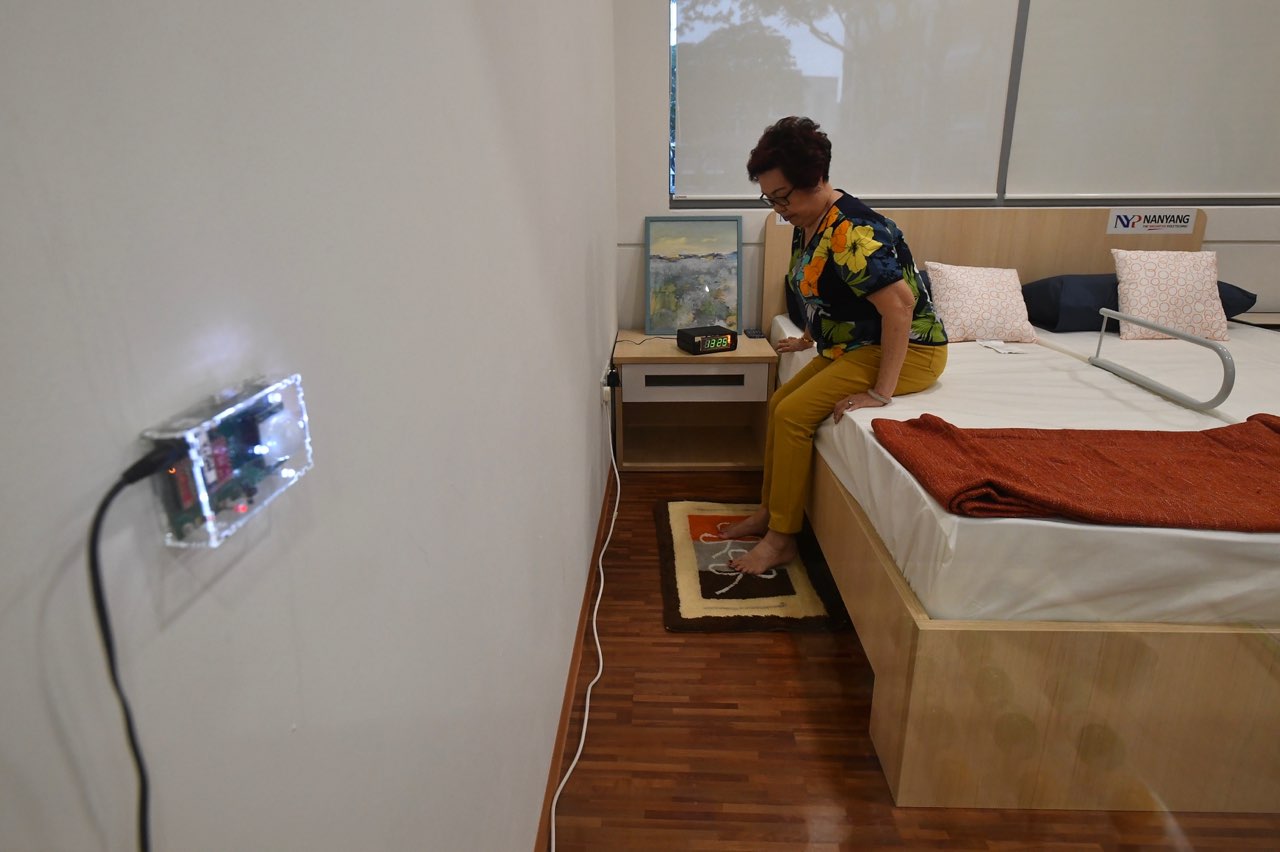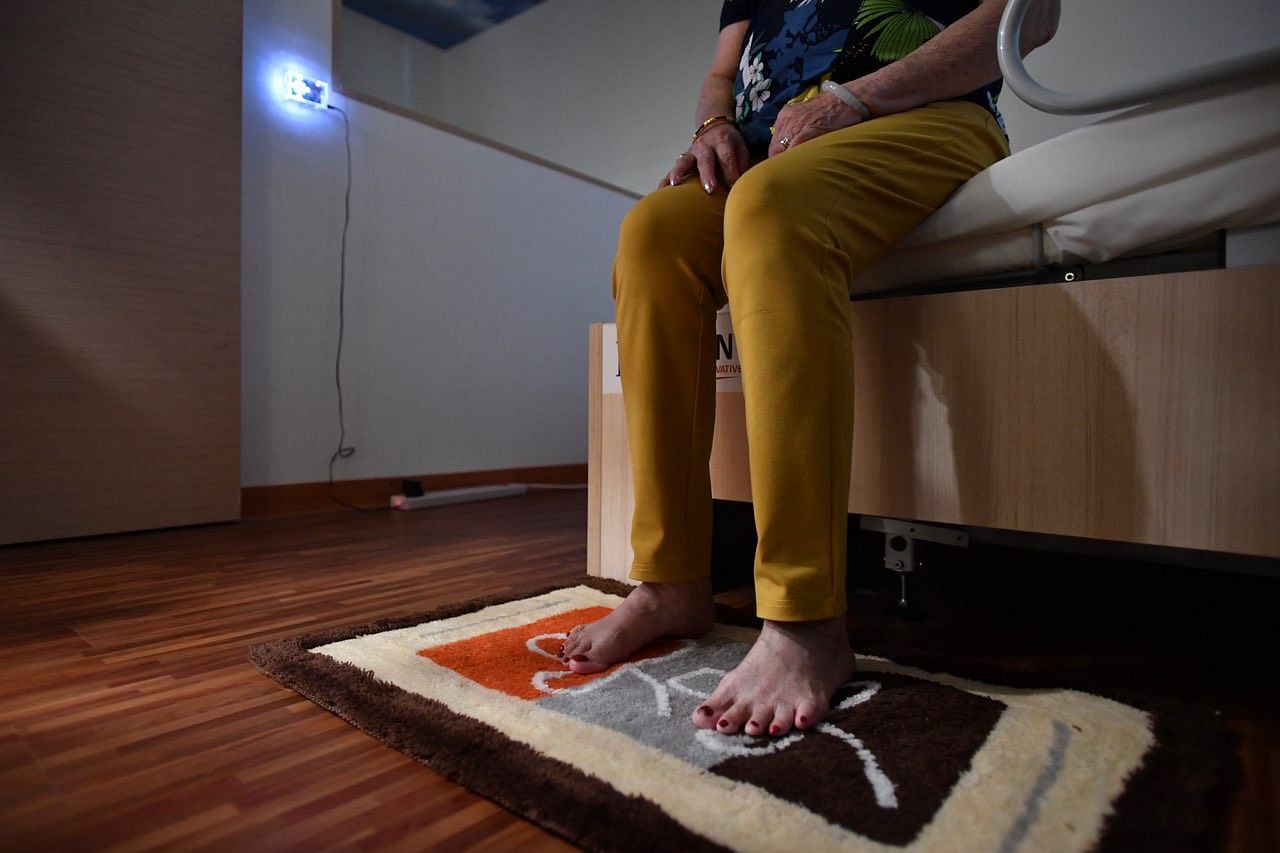Smart floormat could be a step forward in helping elderly
Sign up now: Get ST's newsletters delivered to your inbox

The IoT Night Watcher can detect when it is stepped on. When placed beside a bed, or in front of the entrance to the bathroom or kitchen, the data captured can create an image of a user's movement patterns and habits.
ST PHOTO: LIM YAOHUI
SINGAPORE - A smart floormat to help healthcare professionals or caregivers monitor the elderly, especially those who live alone, could be on the market by early next year.
Dr Poh Kok Kiong, a senior lecturer at the School of Engineering in Nanyang Polytechnic (NYP), has developed a working prototype with local electronics firm Apps-Connect.
The IoT Night Watcher can detect when it is stepped on. When placed beside a bed, or in front of the entrance to the bathroom or kitchen, the data captured can create an image of a user's movement patterns and habits.
More elderly people live alone and want to be independent, Dr Poh said during a demonstration of the technology at NYP on Thursday (Dec 13).
"As their children or caregivers, we want to know if they are okay, but at the same time, we do not want to be too intrusive," he added.
Dr Poh experimented with other solutions for monitoring the movements of his own parents and those of residents at community homes but found that they had limitations.
Surveillance cameras are intrusive and the elderly person could be uncomfortable being watched. Motion sensors can be inaccurate and unreliable while elderly people often forget to wear or charge wearable technology.
He then came up with the idea of a smart mat which does not require the elderly person to alter anything about their daily routine.
With the help of students and Apps-Connect, he developed a working prototype which is waterproof and powered by two button cell batteries which can last about a year.
When a person steps on the mat, it sends a wireless signal to a central "gateway" which resembles a digital clock. The system then stores the time and frequency data in a cloud server.
Depending on the placement of the mat, a step could indicate that the person has got in or out of bed, or that they have entered or exited the bathroom.
If the system detects unusual activity or inactivity, it can send an alert to a caregiver who can then physically check on the user.

For example, a higher than usual frequency of toilet usage could indicate that the user might have a medical issue, said Dr Poh.
A caregiver can then share that information with a doctor, which could be useful in diagnosing their condition.
If a user enters the kitchen but does not exit for a longer than usual period of time, it could indicate that they have fallen or injured themselves.
The mat can also be used to control other devices such as lights.
For elderly couples who live together, the mats can be calibrated to their weights to differentiate between them, said Dr Poh.
The team plans to make the product commercially available by the first quarter of next year, according to Mr Chua Thiam Leng, managing director of Apps-Connect.
The mat will cost about $400 or $500 and come with a "gateway" and two light nodes.


